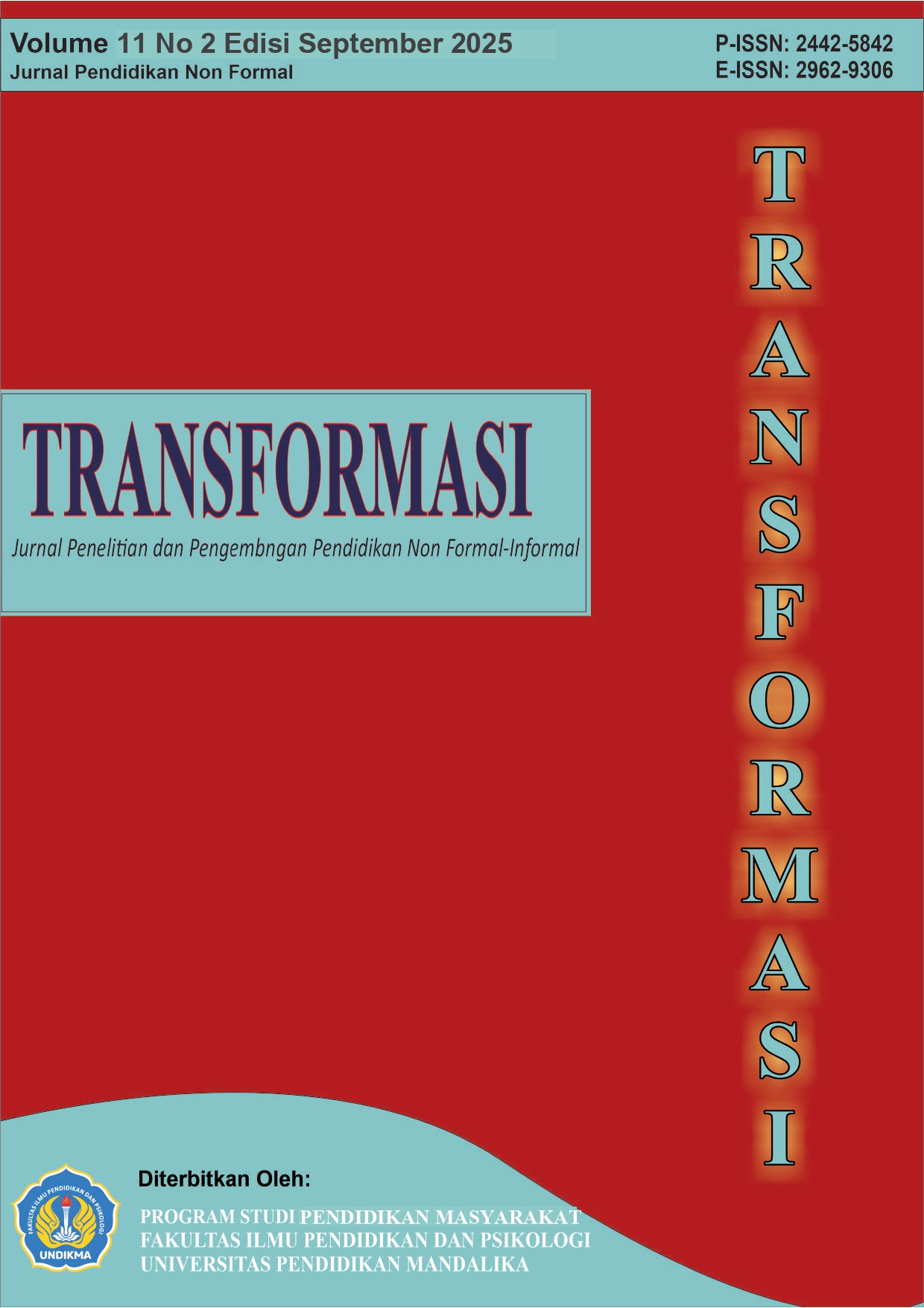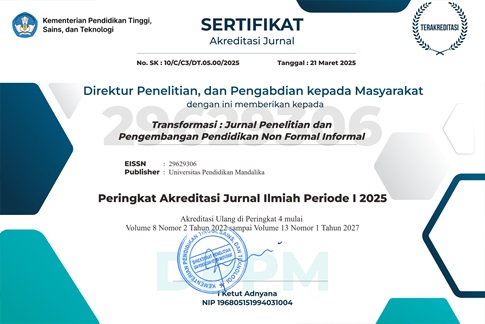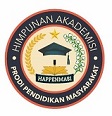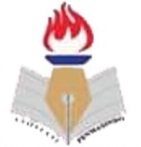Rekonstruksi Pendekatan Andragogi dan Pedagogi Dalam Meningkatkan Kualitas Pembelajaran Mahasiswa
DOI:
https://doi.org/10.33394/jtni.v11i2.16361Keywords:
Reconstruction, Approach, Andragogy, Pedagogy, Rekonstruksi, Pendekatan, Andragogi, PedagogiAbstract
Abstract: The higher education system in Indonesia faces serious challenges, such as uneven teaching quality, lack of reputable research output, and the impact of digital transformation and the COVID-19 pandemic. To respond to this, a learning approach is needed that can meet the needs of today's students. This article examines and reconstructs two main approaches in education, namely andragogy and pedagogy, emphasizing the role of both in improving the quality of learning in higher education. The andragogy approach emphasizes independent learning, relevance of experience, and high intrinsic motivation in adult learners. Meanwhile, pedagogy, although rooted in children's education, is now evolving towards a more participatory, contextual, and technology-based approach. This study also highlights implementation challenges, such as the readiness of lecturers to apply innovative methods such as flipped classrooms, technical constraints in online learning, and the diversity of student learning styles. This literature review offers a flexible integration of andragogy and pedagogy principles to create an inclusive, adaptive, and effective learning environment. It is recommended that lecturers improve their competencies through continuous training and utilize technologies such as AI to personalize learning. By reconstructing a teaching approach that is more responsive to the contemporary context, this article aims to provide theoretical and practical contributions to improving the quality of higher education in Indonesia.
Abstrak: Sistem pendidikan tinggi di Indonesia menghadapi tantangan serius, seperti kualitas pengajaran yang belum merata, kurangnya output penelitian bereputasi, serta dampak dari transformasi digital dan pandemi COVID-19. Untuk merespons hal ini, diperlukan pendekatan pembelajaran yang mampu menjawab kebutuhan mahasiswa masa kini. Artikel ini mengkaji dan merekonstruksi dua pendekatan utama dalam pendidikan, yaitu andragogi dan pedagogi, dengan menekankan peran keduanya dalam meningkatkan kualitas pembelajaran di perguruan tinggi. Pendekatan andragogi menitikberatkan pada pembelajaran mandiri, relevansi pengalaman, dan motivasi intrinsik yang tinggi pada pembelajar dewasa. Sementara pedagogi, meskipun berakar pada pendidikan anak-anak, kini mengalami evolusi ke arah pendekatan yang lebih partisipatif, kontekstual, dan berbasis teknologi. Penelitian ini juga menyoroti tantangan implementatif, seperti kesiapan dosen dalam menerapkan metode inovatif seperti flipped classroom, kendala teknis dalam pembelajaran daring, serta keberagaman gaya belajar mahasiswa. Studi literatur ini menawarkan integrasi fleksibel antara prinsip andragogi dan pedagogi untuk menciptakan lingkungan belajar yang inklusif, adaptif, dan efektif. Disarankan agar pengajar meningkatkan kompetensinya melalui pelatihan berkelanjutan dan memanfaatkan teknologi seperti AI untuk personalisasi pembelajaran. Dengan merekonstruksi pendekatan pengajaran yang lebih responsif terhadap konteks kontemporer, artikel ini bertujuan memberikan kontribusi teoretis dan praktis bagi peningkatan mutu pendidikan tinggi di Indonesia.
References
Aleixo, A. M., Azeiteiro, U. M., & Leal, S. (2015). Toward sustainability through higher education: Sustainable development incorporation into Portuguese higher education institutions (pp. 159–187). Springer.
Amalia, R. T., & Von Korflesch, H. F. O. (2021). Entrepreneurship education in Indonesian higher education: Mapping literature from the country’s perspective. Entrepreneurship Education, 4(3), 291–333.
Atashinsadaf, A., Ramezani-Badr, F., Long, T., Imanipour, M., & Amini, K. (2024). Facilities, challenges, attitudes, and preferences of nursing students related to e-learning in the COVID-19 pandemic in Iranian context: A cross-sectional study. BMC Medical Education, 24(1).
Chavez, J. V., Gregorio, M. W., Libre, J. M., & Cabral, N. P. (2023). Human resource profiling for post-pandemic curriculum reconfiguration in higher education. Journal of Infrastructure, Policy and Development, 7(2), 1975.
Christou, O., Armenia, S., Manou, D. B., Blouchoutzi, A., Papathanasiou, I., & Franco, E. (2024). Fostering a whole institution approach to sustainability through systems thinking: An analysis of the state-of-the-art in sustainability integration in higher education institutions. MDPI AG.
Concannon, B. J., Esmail, S., & Roduta Roberts, M. (2019). Head-mounted display virtual reality in post-secondary education and skill training. Frontiers in Education, 4. https://doi.org/10.3389/feduc.2019.00080
Cooke, N. A. (2010). Becoming an andragogical librarian: Using library instruction as a tool to combat library anxiety and empower adult learners. New Review of Academic Librarianship, 16(2), 208–227.
Forrest, S. P., & Peterson, T. O. (2006). It’s called andragogy. Academy of Management Learning & Education, 5(1), 113–122.
Hazaymeh, W. A., Remache, A., & Bouzenoun, A. (2024). EFL instructors’ perspective on using AI applications in English as a foreign language teaching and learning. Emerging Science Journal, 8, 73–87.
Indrawati, S. M., & Kuncoro, A. (2021). Improving competitiveness through vocational and higher education: Indonesia’s vision for human capital development in 2019–2024. Bulletin of Indonesian Economic Studies, 57(1), 29–59.
Lambey, L., Burgess, J., Jeini Usoh, E., & Lambey, R. (2024). Challenges and opportunities to internationalize the Indonesian higher education sector. IntechOpen.
Lin, H.-Y. (2019). Perceptions of the Englishization of higher education in Taiwan: Implementation and implications. International Journal of Bilingual Education and Bilingualism, 23(5), 617–634.
Listiyandini, R. A., Newby, J. M., Kusristanti, C., Mahoney, A., Moulds, M., & Andriani, A. (2023). Culturally adapting an internet-delivered mindfulness intervention for Indonesian university students experiencing psychological distress: Mixed methods study. JMIR Formative Research, 7, e47126.
Loeng, S. (2023). Pedagogy and andragogy in comparison - Conceptions and perspectives. Andragoška Spoznanja, 29(2), 39–52.
Mat Halif, M., Hassan, N., Sumardi, N. A., Shekh Omar, A., Ali, S., Abdul Aziz, R., Abdul Majid, A., & Salleh, N. F. (2020). Moderating effects of student motivation on the relationship between learning styles and student engagement. Asian Journal of University Education, 16(2), 93.
Namaziandost, E., Kargar Behbahani, H., & Heydarnejad, T. (2024). Tapping the alphabets of learning-oriented assessment: Self-assessment, classroom climate, mindsets, trait emotional intelligence, and academic engagement are in focus. Language Testing in Asia, 14(1).
Nehls, N. (1995). Narrative pedagogy: Rethinking nursing education. The Journal of Nursing Education, 34(5), 204–210.
Parry, S., & Metzger, E. (2023). Barriers to learning for sustainability: A teacher perspective. Sustainable Earth Reviews, 6(1).
Ritonga, A. W., Nurdianto, T., Lahmi, A., Kustati, M., Ritonga, M., Rehani, R., Pahri, P., & Yasmadi, Y. (2020). E-learning process of Maharah Qira’ah in higher education during the COVID-19 pandemic. International Journal of Higher Education, 9(6), 227.
Savicevic, D. (2008). Convergence or divergence of ideas on andragogy in different countries. International Journal of Lifelong Education, 27(4), 361–378.
Siregar, H. S. (2023). Perceived usefulness and perceived ease of use of online learning for Islamic religious education teacher. Jurnal Pendidikan Islam, 9(1), 93–106.
Strelan, P., Osborn, A., & Palmer, E. (2020). Student satisfaction with courses and instructors in a flipped classroom: A meta‐analysis. Journal of Computer Assisted Learning, 36(3), 295–314.
Susanti, D. (2010). Privatisation and marketisation of higher education in Indonesia: The challenge for equal access and academic values. Higher Education, 61(2), 209–218.
Downloads
Published
How to Cite
Issue
Section
Citation Check
License
Copyright (c) 2025 Transformasi : Jurnal Penelitian dan Pengembangan Pendidikan Non Formal Informal

This work is licensed under a Creative Commons Attribution-ShareAlike 4.0 International License.
License Term
Â
This work is licensed under a Creative Commons Attribution-ShareAlike 4.0 International License.












